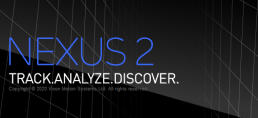Research projects at the Chair of Materials Handling and Warehousing
Innovation Lab
Logistics is much more than the transport of goods and commodities. Parallel to the transport of goods, logistics ensures the accompanying flow of information. It became the driver and symbol of international and value-added networking and an important innovation driver for Industry 4.0.
In the «Hybrid Services in Logistics» research project an innovation laboratory was set up at TU Dortmund University to develop, test and put into practice new logistics technologies quickly and easily. The focus is on those hybrid services that lead to horizontal and vertical networking of the economy. In particular, new forms of cooperation between people and machines are being researched.
In the innovation laboratory, demonstrators and test environments are set up. At the same time, a scientific and social discourse on the further development of human-machine interaction and new concepts of industrial work is initiated. Companies can thus develop and test new strategies, product and process innovations in Dortmund. This will result in new software and hardware services, planning and operating concepts for agile logistics systems, and solutions for a new generation of human-machine interface. The results find their way into practice – especially in SMEs – via targeted transfer projects and the scientific-social network.
The social networked industry needs people and serves the people. Against this background, digital technologies are being developed in the Hybrid Services in Logistics Innovation Lab that provide meaningful support to people and increase their productivity and satisfaction.
The shaping of innovations into hybrid services is ensured by so-called showcases with the (among others with the Vicon system) in five areas: Trade, Production Logistics, Transport, Maintenance and Virtual Training.
Detailed information about the newly designed InnoLab Research Centre


